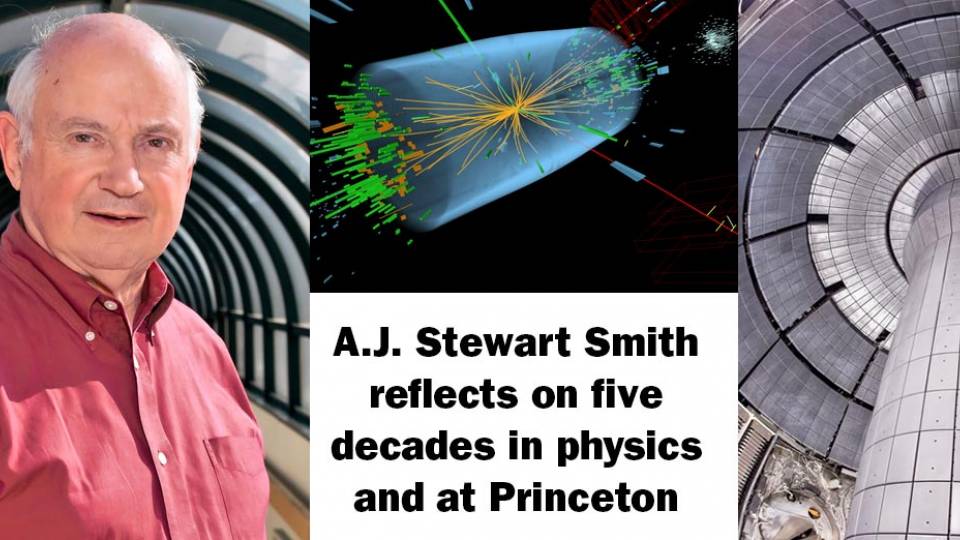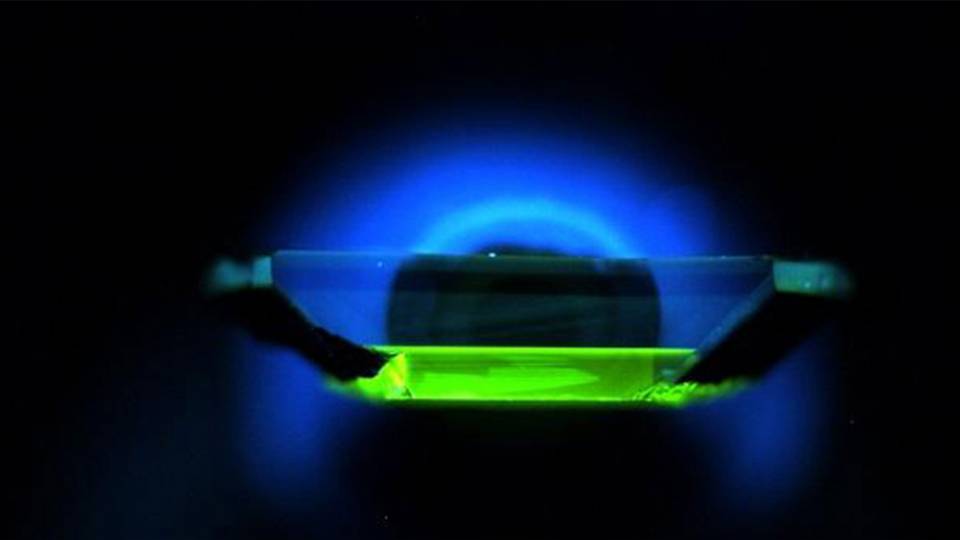William Brinkman, a senior research physicist in the Department of Physics at Princeton University, has been confirmed by the U.S. Senate as director of the Office of Science in the U.S. Department of Energy.
The office is the single largest supporter of basic research in the physical sciences in the United States, providing more than 40 percent of total funding in this vital area. It oversees -- and is the principal federal funding agency of -- the nation's research programs in high-energy physics, nuclear physics and fusion energy sciences. The Office of Science also manages 10 national laboratories, which are integral to the country's research infrastructure.
The Senate confirmed Brinkman for the position by a voice vote on Friday, June 19. Brinkman was one of several officials to be nominated April 17 by President Barack Obama for key administrative positions. "Their expertise and dedication will be a valuable asset both to my administration and our nation as we work to bring about the real change that the American people need today," Obama said.
A highly distinguished condensed matter physicist, Brinkman joined Princeton in 2001 after spending several decades at AT&T's legendary Bell Laboratories, part of that period as head of its research efforts. At Princeton, he played an important role in organizing and guiding the physics department's condensed matter group. This past year, he was an organizer of a yearlong program on quantum computing through the auspices of the Princeton Center for Theoretical Science.
"Bill is the perfect person to lead the Office of Science," said A.J. Stewart Smith, Princeton's dean for research. "Though we shall greatly miss his wisdom locally, the country is extremely fortunate he is willing to take on this challenging position at a time when critical choices will set the directions for U.S. basic research for many years to come."
In testimony before the Senate Committee on Energy and Natural Resources on June 2, Brinkman said, if confirmed, he would look forward to working "tirelessly to advance the revolution in energy technologies, to understand nuclear technologies and to continue basic research in the 21st century."
Brinkman brings decades of experience in managing scientific research in government, academia and the private sector to the post. After graduating with his Ph.D. in physics from the University of Missouri, he spent a year as a National Science Foundation postdoctoral fellow at Oxford University before joining the staff of Bell Labs in 1966. In his early years, he conducted research in theoretical physics but soon moved to management. "I learned how to hire and support some of the best researchers in the field and to inspire them to greater accomplishments," Brinkman said in his Senate testimony.
As AT&T split into smaller units and the mission changed to one of driving toward applications, Brinkman led a research organization that developed many of the components and systems used in communications today, including advanced optical and wireless technologies.
Brinkman also has supervised government research and worked in the national laboratory system. In 1984, he left Bell Labs to serve as vice president of DOE's Sandia National Laboratories, then operated by AT&T. There he oversaw the expansion of its computer science efforts.
He returned to Bell Labs in 1987 to become executive director of its physics research division. In 1993, he became physical sciences research vice president and in January 2000 he became vice president of research. He retired from Bell Labs, then part of Lucent Technologies, in September 2001.
Brinkman has long served as a leader of the physics community. He was president of the American Physical Society in 2002, and he has served on numerous national committees, including chairing the National Academy of Sciences' Physics Survey, the eight-volume collection known as the "Brinkman Report." He is a member of the National Academy of Sciences, the American Academy of Arts and Sciences and the American Philosophical Society. He was a recipient of the 1994 George E. Pake Prize.
In his testimony before the Senate, Brinkman touched on topics that included basic research, science education, energy, nonproliferation and nuclear security. He also spoke enthusiastically about the many science projects he saw that were worthy of support.
The Office of Science is the steward of 10 national laboratories that support the missions of its science programs. The national laboratory system, created over a half-century ago, represents the most comprehensive research system of its kind in the world. These laboratories perform research and development that is not well suited to university or private sector research facilities because of its scope, infrastructure or multidisciplinary nature, but for which there is a strong public and national purpose.
Those laboratories include the Princeton Plasma Physics Laboratory as well as Ames Laboratory; Argonne National Laboratory; Brookhaven National Laboratory; Fermi National Accelerator Laboratory; Thomas Jefferson National Accelerator Facility; Lawrence Berkeley National Laboratory; Oak Ridge National Laboratory; Pacific Northwest National Laboratory; and SLAC National Accelerator Laboratory.



